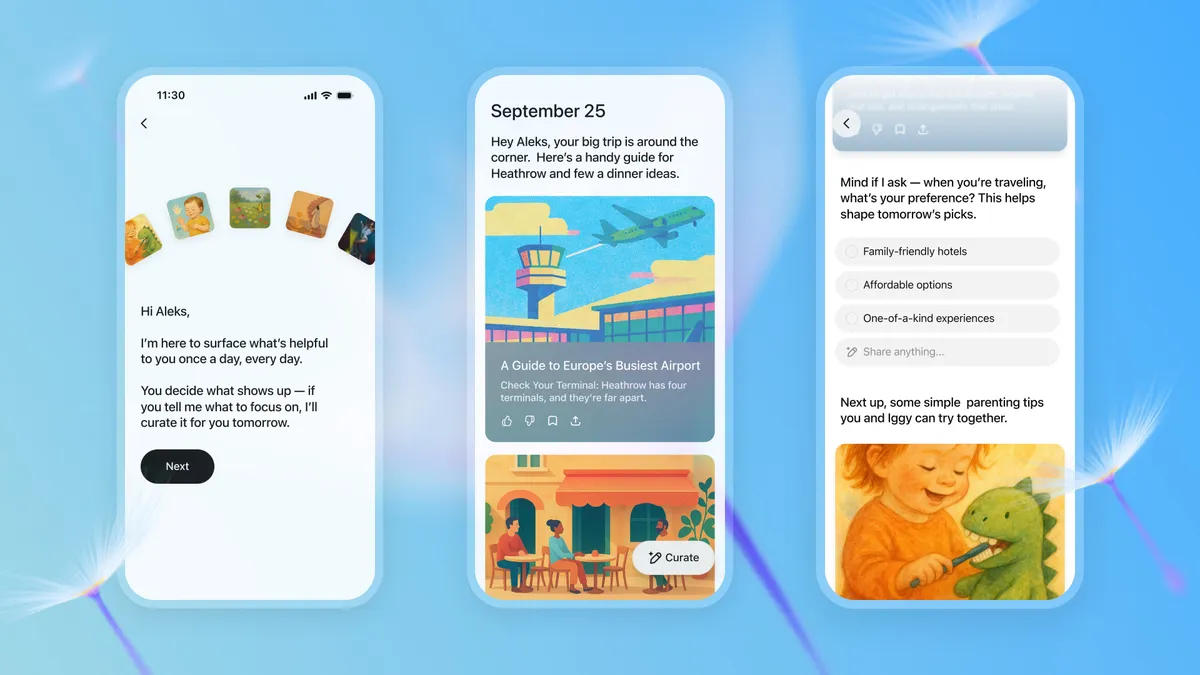OpenAI is rolling out a new feature called ChatGPT Pulse, designed to give users a personalized morning briefing based on their conversations and connected apps. For now, the service is available only on mobile and limited to Pro subscribers who pay $200 per month, though the company says it plans to expand access to $20 per month Plus users in the near future.
Pulse delivers a daily visual card that appears as a large notification on a user’s phone. Drawing from past chats, user feedback, and integrations like Gmail and Google Calendar, the briefing can include reminders about meetings, task suggestions such as drafting agendas, or even lifestyle tips like dinner ideas and gift recommendations. Integrations are opt-in, meaning users must explicitly enable them in settings.
OpenAI is framing Pulse as a step toward making AI more proactive. The idea is to function less like a tool users query and more like an assistant that anticipates needs, similar to how personal aides work for executives or political leaders. Fidji Simo, CEO of applications at OpenAI, suggested that AI could help reduce the significant time households spend on domestic logistics and errands, potentially offering support that has historically been available only to those who could afford personal assistants.
At the same time, Pulse reflects a broader trend in AI development toward “agentic” systems—tools capable of acting on behalf of users without requiring direct prompts. This trajectory is not without risk. Current AI systems can still provide inaccurate or irrelevant suggestions, and OpenAI acknowledges that Pulse is a preview product that may generate outdated or misplaced recommendations. The company is relying on user feedback to refine the feature over time.
The launch also underscores the tension between ambition and reliability in generative AI. While companies are racing to create systems that function as autonomous digital aides, the underlying technology remains prone to errors. Users may benefit from more personalized assistance, but the trade-off is trusting an AI that can still misunderstand context or provide misleading advice.
Pulse’s limited release gives OpenAI a controlled environment to test whether users find value in a daily AI briefing and whether it meaningfully reduces the mental load of routine planning. If successful, it could mark a shift toward more embedded and anticipatory AI in everyday life.







